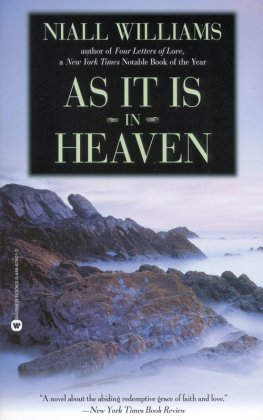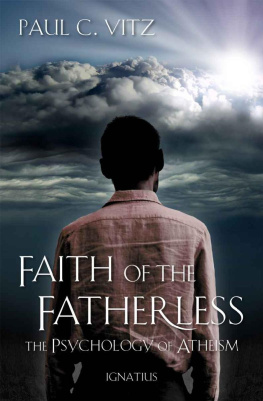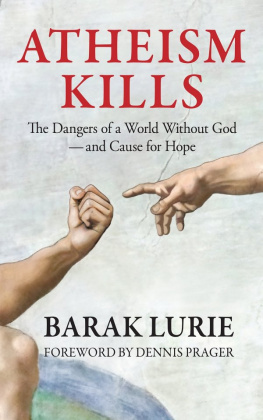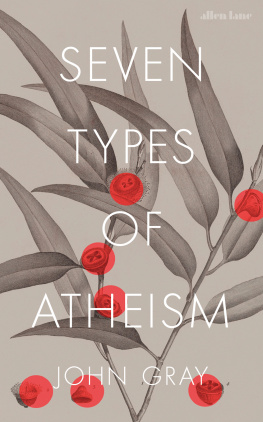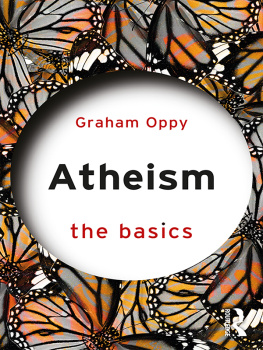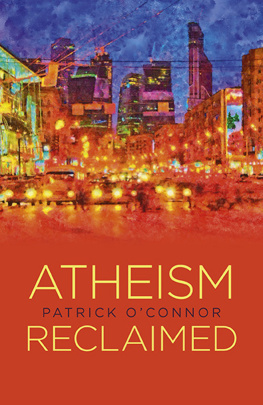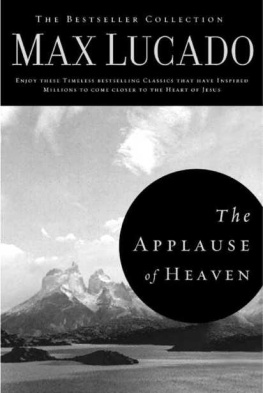Mitchell Stephens - Imagine Theres No Heaven: How Atheism Helped Create the Modern World
Here you can read online Mitchell Stephens - Imagine Theres No Heaven: How Atheism Helped Create the Modern World full text of the book (entire story) in english for free. Download pdf and epub, get meaning, cover and reviews about this ebook. year: 2014, publisher: Palgrave Macmillan, genre: Religion. Description of the work, (preface) as well as reviews are available. Best literature library LitArk.com created for fans of good reading and offers a wide selection of genres:
Romance novel
Science fiction
Adventure
Detective
Science
History
Home and family
Prose
Art
Politics
Computer
Non-fiction
Religion
Business
Children
Humor
Choose a favorite category and find really read worthwhile books. Enjoy immersion in the world of imagination, feel the emotions of the characters or learn something new for yourself, make an fascinating discovery.

- Book:Imagine Theres No Heaven: How Atheism Helped Create the Modern World
- Author:
- Publisher:Palgrave Macmillan
- Genre:
- Year:2014
- Rating:3 / 5
- Favourites:Add to favourites
- Your mark:
- 60
- 1
- 2
- 3
- 4
- 5
Imagine Theres No Heaven: How Atheism Helped Create the Modern World: summary, description and annotation
We offer to read an annotation, description, summary or preface (depends on what the author of the book "Imagine Theres No Heaven: How Atheism Helped Create the Modern World" wrote himself). If you haven't found the necessary information about the book — write in the comments, we will try to find it.
Imagine Theres No Heaven: How Atheism Helped Create the Modern World — read online for free the complete book (whole text) full work
Below is the text of the book, divided by pages. System saving the place of the last page read, allows you to conveniently read the book "Imagine Theres No Heaven: How Atheism Helped Create the Modern World" online for free, without having to search again every time where you left off. Put a bookmark, and you can go to the page where you finished reading at any time.
Font size:
Interval:
Bookmark:

Imagine Theres No Heaven
Imagine Theres No Heaven
How Atheism Helped Create the Modern World
Mitchell Stephens


IMAGINE THERES NO HEAVEN
Copyright Mitchell Stephens, 2014.
All rights reserved.
First published in 2014 by PALGRAVE MACMILLAN in the United States
a division of St. Martins Press LLC, 175 Fifth Avenue, New York, NY 10010.
Where this book is distributed in the UK, Europe and the rest of the world, this is by Palgrave Macmillan, a division of Macmillan Publishers Limited, registered in England, company number 785998, of Houndmills, Basingstoke, Hampshire RG21 6XS.
Palgrave Macmillan is the global academic imprint of the above companies and has companies and representatives throughout the world.
Palgrave and Macmillan are registered trademarks in the United States, the United Kingdom, Europe and other countries.
ISBN 978-1-137-00260-0
Library of Congress Cataloging-in-Publication Data
Stephens, Mitchell.
Imagine theres no heaven : how atheism helped create the modern world / Mitchell Stephens.
pages cm
Includes bibliographical references and index.
ISBN 978-1-137-00260-0 (alk. paper)
1. AtheismHistory. 2. AtheismInfluence. I. Title.
BL2747.3.S748 2014
211.809dc23
2013035039
A catalogue record of the book is available from the British Library.
Design by Letra Libre, Inc.
First edition: February 2014
10 9 8 7 6 5 4 3 2 1
Printed in the United States of America.
To Esther, Bernie, Lil, Beth, Walter, Anne, Artie, Lauren, Seth and Noah
Come no chimeras! Let us go abroad; let us mix in affairs; let us learn and get and have and climb.... Let us have to do with real men and women, and not with skipping ghosts.
Ralph Waldo Emerson
Contents
Why Disbelief
Disbelief and Learning Arrive Together in Greece
Disbelief and Learning Decline Together in
Christian Europe
Europes Return to Reason
Disbelief and Science in the Seventeenth Century
The Beginnings of the Enlightenment
The Enlightenment Argument for Atheism
Revolution in America and France
Abolition, Suffrage and Freethinking
Working-Class Atheism in Nineteenth-Century
Britain
Creating the Twentieth Century
Living Without Gods
Secularism in Europe and America
Religion Unregarded
Prologue
Everything Must Be Examined
A revolution is always accomplished against the gods.
Albert Camus
D enis Diderot first came to Paris as a teenager in 1728 to continue the education he had begun with the Jesuits. He was an enthusiastic student, even deciding at one point to become a Jesuit. But Diderot soon learned that another kind of education was available in Paris in the eighteenth century. Evenings spent in conversation with the citys impoverished bohemians and budding intellectuals eventually cost the young man his faith in the church, the Jesuits and then in Christ. His father ordered him to leave Paris. Diderot stayed. He had a new aspiration: to become a philosopher.
Diderot married a woman who desired fidelity. He found a mistress who desired moneyin shorter supply among his crowd even than fidelity. This, along with the birth of two children, encouraged Diderots transition from mere caf habitu to published author.
His early efforts included a translation of a history of Greece, an erotic novel and a project that would prove noteworthy: Diderot signed on to help with the translation into French of an Englishmans Cyclopoedia, or Universal Dictionary of the Arts and Science. He was also writing philosophyincreasingly controversial, clandestinely published philosophy. For, after some more years of impassioned discussion, reading and writing, Denis Diderot no longer believed in any sort of god.
In recounting the history of atheism, this book will have many such tales to tell. Yes, it is true that in just about all human societies at just about all times most believed that the universe is governed by a supernatural Being (or beings). However, many individuals in many societies at many times surrendered, as did Diderot, that belief. The names of some of them are familiar: Percy Bysshe Shelley, Charles Darwin, Karl Marx, Sigmund Freud, Virginia Woolf, Albert Camus, Simone de Beauvoir, Salman Rushdie and even the Marquis de Sade. Others who chose to live without religionErnestine Rose and Charles Bradlaugh are examplesshould be better known, given their historical import and former notoriety.
Most societies at most times scorned those who denied their God (or gods), so atheists sometimes suffered persecution, displayed courage, led lives of struggle. The book in which Diderot worked out his argument against the existence of God, Letter on the Blind, was published under a pseudonym, but the authorities connected it to him. Diderots punishment was three months in the Vincennes prisonone of them in its dungeon.
However, despite the fact that they often had to hide their ideas or publish clandestinely, despite the fact that they sometimes were thrown in prison, nonbelievers such as Diderot helped lead the way to the modern world. Indeed, the struggles of those who challenged the supernatural and insisted that we concern ourselves instead with the natural contributed, I will argue, to what may be humankinds greatest accomplishments: the advancement of knowledge and the expansion of human rights. Subtracting overbearing gods from the heavens encouraged the growth of learning and liberty on earth.
This book focuses mostly, but not entirely, on the West. It ends in the twenty-first century with religion showing signs of weakening even in that hotbed of belief, the United States. It starts in Greece in Thucydides time, when myths receded and history, science and philosophy began racing ahead.
Enlightenment Paris was another place where the value for new thinking of turning away from old gods was particularly apparent. The attacks on religion that energized cafs, salons and underground bookstalls inspired challenges to church-supported prejudices and tyrannies. Atheism in eighteenth-century France promoted egalitarianism. Discouraging reliance upon church authority also encouraged the eras voracious pursuit of secular knowledgeexhibited in the Enlightenments great work: the thirty-five-volume Encyclopdie.
Indeed, rarely have the contributions of atheism to the creation of the modern world been as apparent as in the person of Denis Diderot. His was the main editor of the Encyclopdie.
He had substituted for the small Cyclopoedia, which he was supposed to be translating, an original work: a huge compendium71,818 articles in totalof current human (or at least European) knowledge, in alphabetical order. The authors of those articles included many of the major thinkers of the day. Diderot and other nonbelievers made the editorial decisions. Faith had its testaments. The Encyclopdie stood, with Isaac Newtons Principia Mathematica, as probably the greatest testament to reason and secular understandings since Aristotle.
Everything must be examined, is how Diderot explained the guiding principle of the Encyclopdie, everything must be shaken up, without exception and without circumspection. Religion as well as government, the point was, could not be immune to honest, searching examination if social, political and intellectual progress was to continue. The critique of religion in the Encyclopdie was in fact circumspect, but it was apparent to those familiar with the arguments.
Next pageFont size:
Interval:
Bookmark:
Similar books «Imagine Theres No Heaven: How Atheism Helped Create the Modern World»
Look at similar books to Imagine Theres No Heaven: How Atheism Helped Create the Modern World. We have selected literature similar in name and meaning in the hope of providing readers with more options to find new, interesting, not yet read works.
Discussion, reviews of the book Imagine Theres No Heaven: How Atheism Helped Create the Modern World and just readers' own opinions. Leave your comments, write what you think about the work, its meaning or the main characters. Specify what exactly you liked and what you didn't like, and why you think so.

